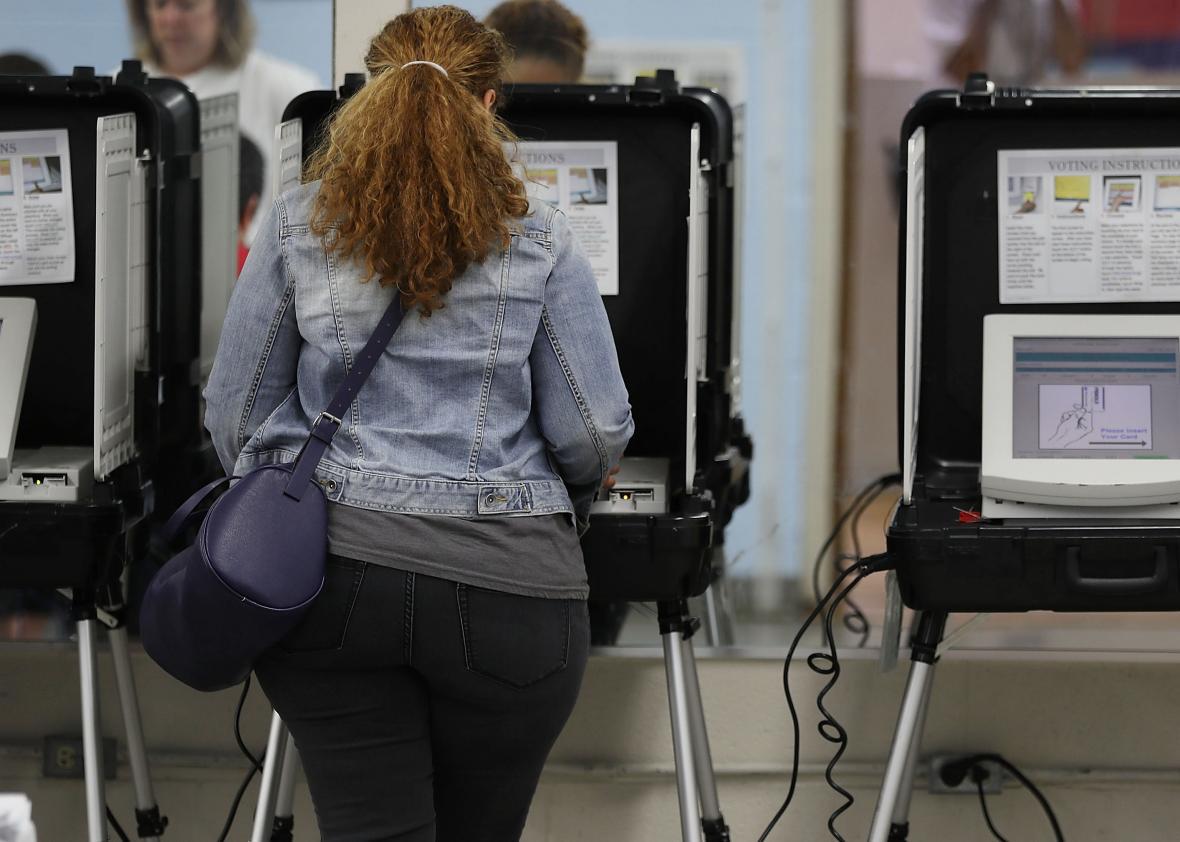On Friday, a judge dismissed the lawsuit to use paper ballots in the upcoming June 20 special election to decide the Georgia’s 6th Congressional District seat.
The high-profile race between Democrat Jon Ossoff and Republican Karen Handel will fill the seat left behind by Tom Price, who now serves as Trump’s secretary of health and human services.
The Rocky Mountain Foundation, a group that seeks to defend constitutional liberties through litigation and public policy, and members of the group Georgians for Verified Voting were the plaintiffs in the suit. Technology experts and professors argued that a paper trail would ensure confidence in the election. According to 11Alive news in Atlanta, the plaintiffs said the machines were “uncertified, unsafe and inaccurate” and that the Center for Election Systems at Kennesaw University, which runs the equipment for the entire state of Georgia, is risking malfunction and intrusion.
But local and state officials were against paper ballots, arguing they would create chaos. A representative from the Fulton County Election Board estimated changing to a paper ballot at this time would cost more than $500,000 and it could mean pushing back the election date.
Georgia Secretary of State Brian Kemp appeared happy with the results and said that he applauds “the judge for finding what we already know: Our voting machines in Georgia are safe and accurate.”
However, Kemp has previously expressed concern about voting-system security. In 2016, Georgia Secretary of State Brian Kemp accused the Department of Homeland Security of trying to hack into Georgia’s computer network. Kemp said the system flagged what appeared to be an attempt to breach the system coming from a DHS IP address. The DHS said that the system was triggered because an employee copy and pasted information from Georgia’s database of licensed security personnel while doing a regular check. Kemp was unsatisfied with this answer, though, and asked Trump to investigate.
In a separate incident in March, the FBI was investigating a hack into the Center for Election Systems. The hacker accessed millions of voter records. The investigation is now closed, and the FBI never charged anyone.
The judge’s decision to not to pursue paper ballots comes on the heels of the Intercept’s recent publication of a National Security Agency document outlining Russia’s months-long effort into interfering with U.S. election systems. The document revealed that Russia accessed elements of local electoral boards, but it’s not clear whether Georgia was affected, since the NSA is not yet sure of the full scope of the interference. It does not seem that any vote totals were changed; instead, the purpose seems to have been to sow distrust in the electoral system. Hackers first attacked a U.S. software election company to help them create a convincing spear-phishing attack. They then posed as e-voting vendors over emails to gain entry to the computers of local government employees. Attackers were focused on the voter registration process and manufacturers of devices that maintain and verify voter rolls. VR Systems, a company that sells electronic voting services, was hacked as well. The company has products in eight states, but Georgia is not one of those.
